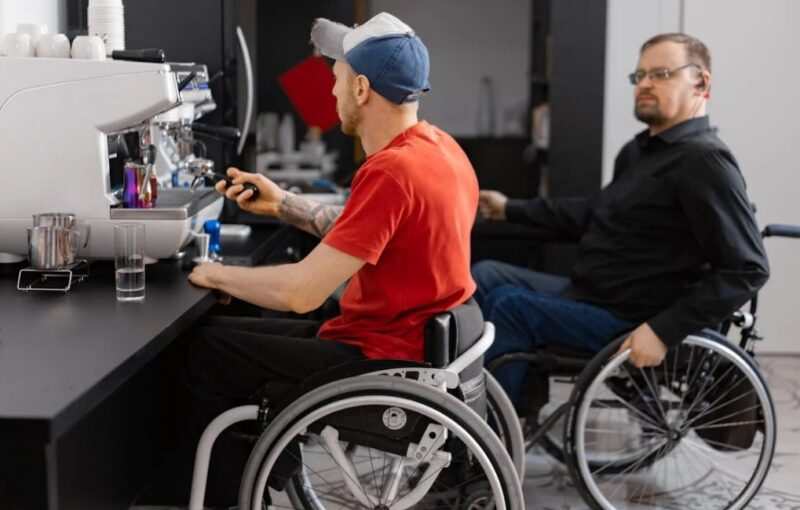It’s critical for healthcare practitioners to stay current with medical research and studies. Medical research is the basis of improvements in patient care, influencing the diagnostic and therapeutic modalities used by doctors and other healthcare professionals. They offer evidence-based insights into a range of illnesses, treatments, and medical innovations, improving results and elevating patient experiences. In order to fully understand the field of medical research and its relevance, techniques, and significant influence on patient care, this article will go into it.
I. The Significance of Medical Studies

Medical studies are scientific research done to investigate many elements of healthcare, such as illness processes, treatment effectiveness, preventative strategies, and patient outcomes. These studies have a significant impact on how medicine is understood, how healthcare policies are developed, and how patient care is delivered. MedicMind to check out the major understanding of medical studies and assistance. Medical studies enable researchers to test hypotheses, evaluate novel therapies, and produce strong evidence to assist medical decision-making by offering a rigorous scientific framework. They also fill the gap between research and clinical practice, making it easier to translate scientific advancements into real advantages for patients.
Students Taking Help from Private Medical Tutors
A thorough comprehension of difficult scientific ideas is necessary for the arduous and challenging journey that is medical school. Many students find themselves seeking additional help to achieve in their studies as a result of the rising competition and rigorous requirements in medical schools. Private medical tutors have become a well-liked resource for students, offering them customized help and support as they negotiate the difficulties of medical school. This article attempts to investigate the factors influencing students’ decisions to work with private medical tutors, as well as the advantages they provide and possible factors to take into account.
Reasons for Seeking Private Medical Tutors
- Challenging Curriculum: The amount of material and complex ideas that are involved in medical school might be intimidating for students. Private medical tutors may assist students in grasping complex concepts, break them down into manageable chunks, and offer further explanations and examples to help with comprehension.
- Individualized Attention: It might be challenging for lecturers to give each student their undivided attention in a big classroom. One-on-one meetings with private medical tutors enable students to target their particular areas of difficulty, ask questions without restriction, and receive personalized feedback and support.
- Exam Preparation: Exams for medical school, such as board exams and licensing tests, are frequently challenging and demand much study. In order to increase their chances of success, private medical tutors may assist students create efficient study plans, give practice questions and mock tests, and provide insights into exam forms and content.
- Time Management and Study Skills: Medical education demands strong time management and study skills to balance the extensive coursework and clinical rotations effectively. Private tutors can assist students in developing efficient study schedules, improving note-taking techniques, and enhancing critical thinking and problem-solving abilities.
- Confidence Building: Academically and emotionally demanding medical school can cause self-doubt and worry. Private medical tutors offer a motivating and encouraging environment that helps students overcome obstacles, develop confidence in their skills, and stay motivated throughout their educational path.
II. Methodologies of Medical Studies

Different techniques are used in medical research, each one designed to tackle a particular research problem. RCTs, or randomized controlled trials, are regarded as the benchmark for clinical research. To gauge the effectiveness of an intervention, they entail dividing people into several groups at random, such as a treatment group and a control group. On the other hand, observational studies follow people in their natural environments without any kind of intervention with the goal of identifying relationships between risk variables and health outcomes. Cohort studies, case-control studies, cross-sectional research, and systematic reviews/meta-analyses are further techniques. Each approach has a unique impact on patient treatment and adds to the body of medical knowledge as a whole.
III. Advancements in Diagnosis and Treatment
Medical research has greatly improved diagnosis, allowing medical professionals to recognize illnesses and ailments with accuracy. Through research, scientists have created brand-new diagnostic instruments, improved screening procedures, and improved imaging techniques that aid in early diagnosis and intervention. For instance, research into breast cancer led to the creation of mammography, a screening method that helps find breast tumors early on and increases survival rates. The management of many malignancies has also been revolutionized by research into therapeutic methods such targeted treatments and immunotherapies, which has improved patient outcomes and lengthened lives.
IV. Personalized Medicine and Precision Healthcare

The development of medical research has opened the way for personalized medicine and precision healthcare, in which a patient’s specific traits, such as genetic make-up, lifestyle choices, and illness biomarkers, are taken into account when determining the best course of treatment. Medical research has discovered biomarkers that support personalized therapy and help predict treatment outcomes by studying the genetic underpinnings of illnesses. For instance, research on certain gene mutations in lung cancer patients has resulted in the creation of targeted medicines that precisely block those mutant genes, providing patients with the corresponding mutations with notable advantages. Medical research enables healthcare professionals to give individualized therapies that maximize outcomes and minimize side effects through precision healthcare.
V. Evidence-Based Medicine and Clinical Guidelines
Evidence-based medicine (EBM), a strategy that combines the best available evidence with clinical experience and patient values, is built on medical studies. EBM guarantees that medical judgements are supported by thorough scientific research, fostering efficient and secure patient care. Clinical guidelines, which are evidence-based advice for healthcare providers to follow while managing particular diseases or ailments, are developed in part thanks to medical studies. These recommendations are based on the results of various medical research and detail the best methods for diagnosis, treatment, and prevention. Healthcare professionals may give standardized treatment, improve patient safety, and maximize clinical results by following clinical guidelines.
VI. Enhancing Patient-Centered Care

The improvement of patient-centered care, which emphasizes the individual’s wants, preferences, and values, depends heavily on medical studies. Studies gain understanding of the effects of various therapies on patients’ quality of life, functional status, and general well-being by including patient-reported outcomes and experiences. These findings help healthcare professionals make better educated choices by taking into account the total requirements of their patients in addition to illness treatment. Additionally, research in medicine on shared decision-making and patient engagement enable people to actively participate in their treatment, encouraging a collaborative and patient-centered approach.
Conclusion
The foundation of improvements in patient care, which have revolutionized diagnosis, treatment, and healthcare delivery, is provided by medical studies. These research provide data through meticulous procedures that influence medical recommendations, inform clinical judgement, and promote the use of personalized medicine. Keeping up with the most recent research discoveries is increasingly important for healthcare providers to deliver the best treatment as the field of medicine continues to develop. Healthcare professionals may improve patient outcomes, advance healthcare infrastructure, and advance the general welfare of people all over the world by using the potential of medical studies.
Related Posts:
- Seduction On Screen: A Deep Dive Into The Evolution…
- Landmark Intentional Tort Cases: A Deep Dive into…
- Crafting Visual Marvels: Deep Dive Into VFX…
- Garth Brooks and Blake Shelton Dropped their Duet "The Dive"
- Understanding Overuse, Underuse, and Misuse of Medical Care
- 6 Ways Postgraduate Medical Students Use Technology…







